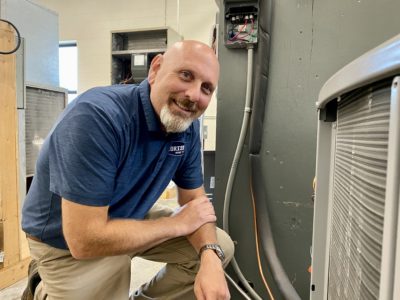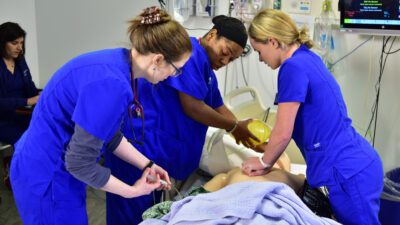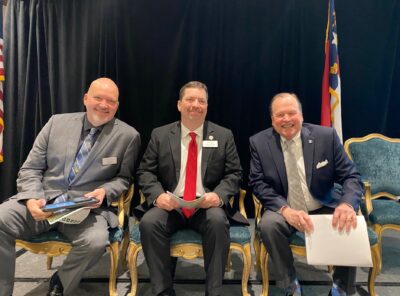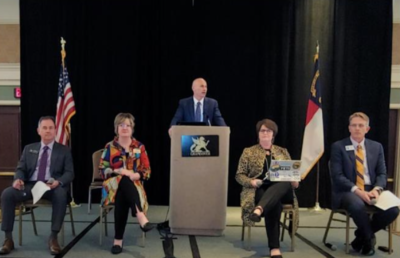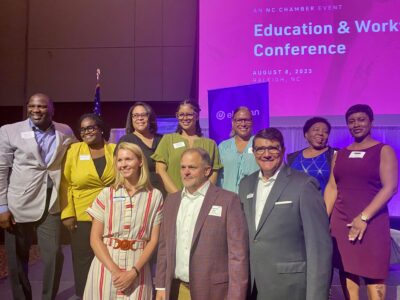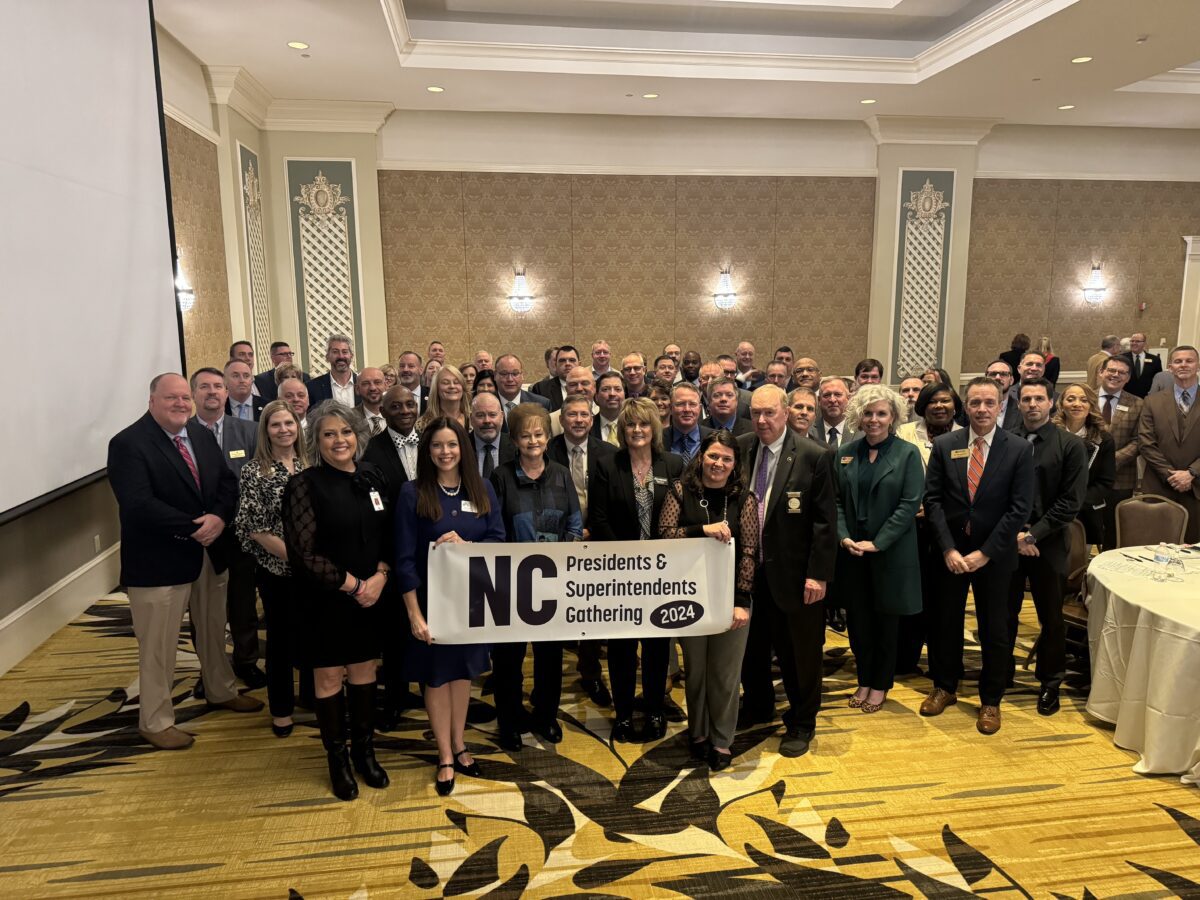

|
|
Community college presidents and K-12 superintendents from throughout North Carolina gathered this week in Greensboro for their 2024 convening, discussing their interconnected roles in the state’s overall health.
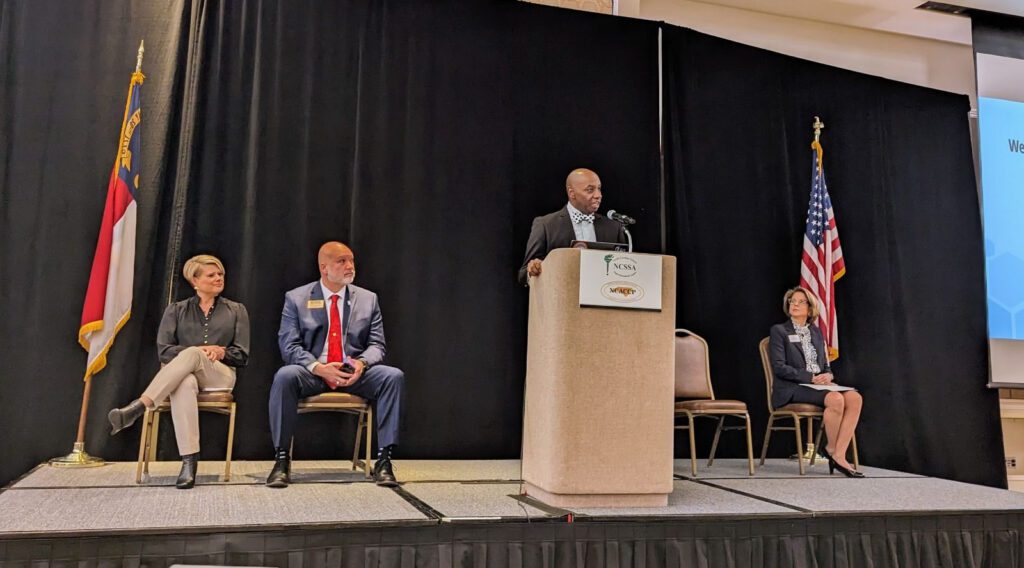

“We have to do better than we’ve ever done before in aligning our work from K-12 to community colleges on to workforce,” said Jeff Cox, president of the NC Community College System, while highlighting North Carolina’s recent strides in economic development.
Echoing that, Superintendent of Public Instruction Catherine Truitt emphasized the need to bridge education and workforce readiness. “We are going to make sure that all kids are ready to graduate from high school and have a plan after they cross the stage as graduates,” she said.
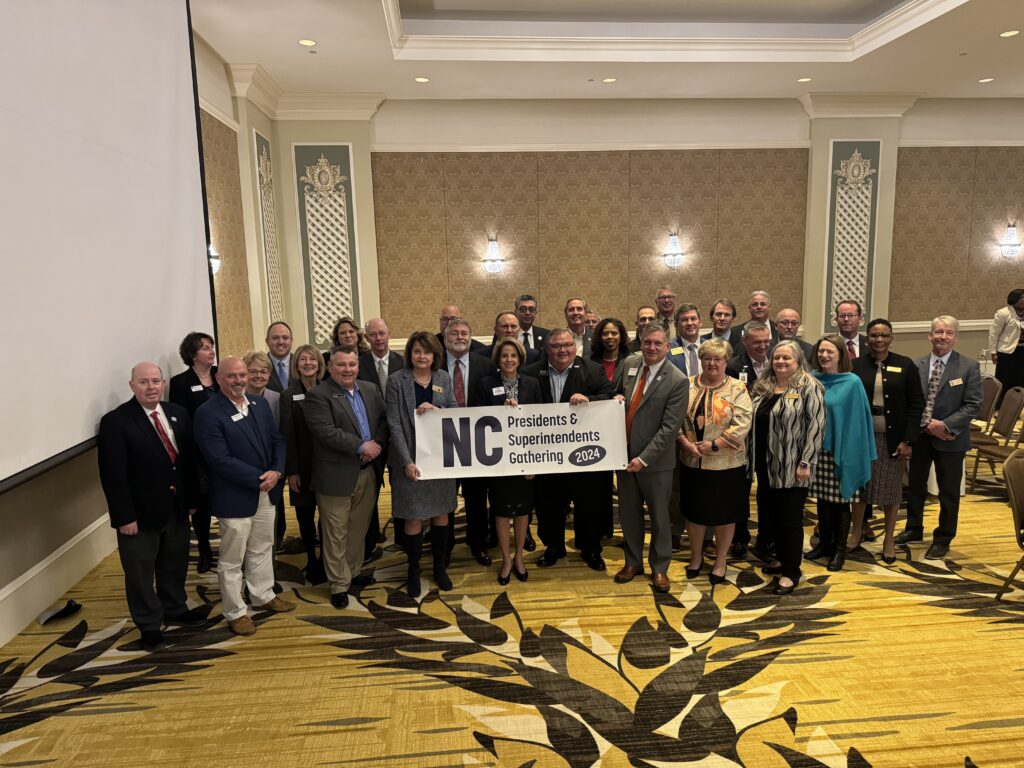

The participants discussed several promising practices to turn alignment of the systems into workforce readiness for the students.
A reimagined CCP approach
Meet Blue Ridge Community College president Laura Leatherwood, president of the North Carolina Community Colleges Presidents Association. She shared lessons from Blue Ridge CC’s work alongside Henderson County Public Schools in their combined Career and College Promise (CCP) efforts.
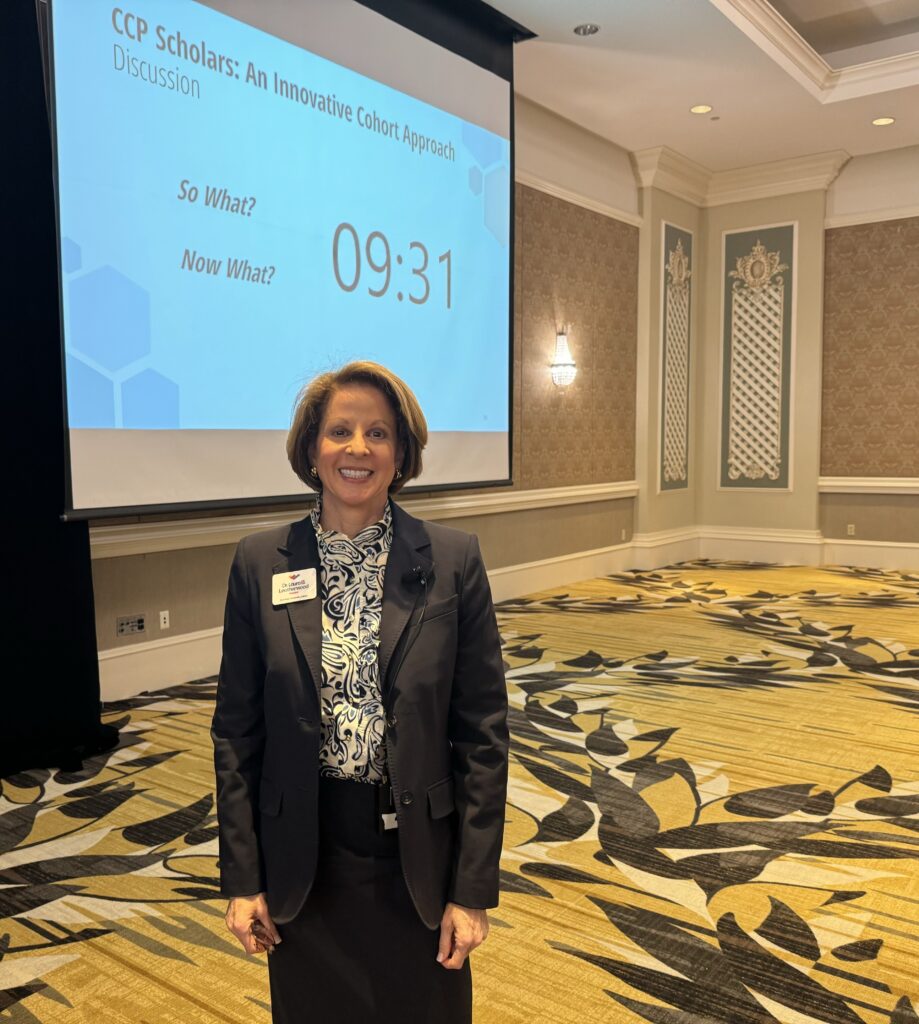

Previously, BRCC collaborated with each of the four high schools within its service area to deliver CCP courses, catering to unique class requests from each campus. This approach, however, led to inconsistent experiences. For instance, the concurrent offering of CCP courses and Advanced Placement (AP) classes in some schools forced students to choose between them. A variety of obstacles resulted in fluctuating participation rates from one year to the next.
In response, BRCC and Henderson County Public Schools embarked on a comprehensive campaign to engage parents and families more deeply.
They reorganized their course offerings into a structured two-year CCP curriculum available at each high school. Enrollment and scheduling processes were streamlined, including fixed scheduling blocks. Textbook costs were covered, and specialized training was provided for instructors and counselors.
This approach gave rise to the “Blue Ridge Scholars” program. Eligible students — those with a minimum 2.8 unweighted GPA, in good academic standing, and willing to commit to two years of CCP — were invited to join the program, aiming for a more cohesive and supportive educational journey.
And what happened? Blue Ridge CC and Henderson County Schools maxed out participation in three of the four high schools in year one, saw a 14% increase in CCP enrollment, and now see parents advocating for students to get into CCP courses.
More promising practices
Meet Mike Krause, senior advisor at the John M. Belk Endowment. Krause helms the NC Reconnect initiative for the endowment, among other roles.
Krause led a collaborative session in which superintendents and community college presidents discussed productive practices involving Career and College Promise, early college graduate plans, career and technical education, and career exploration for students.
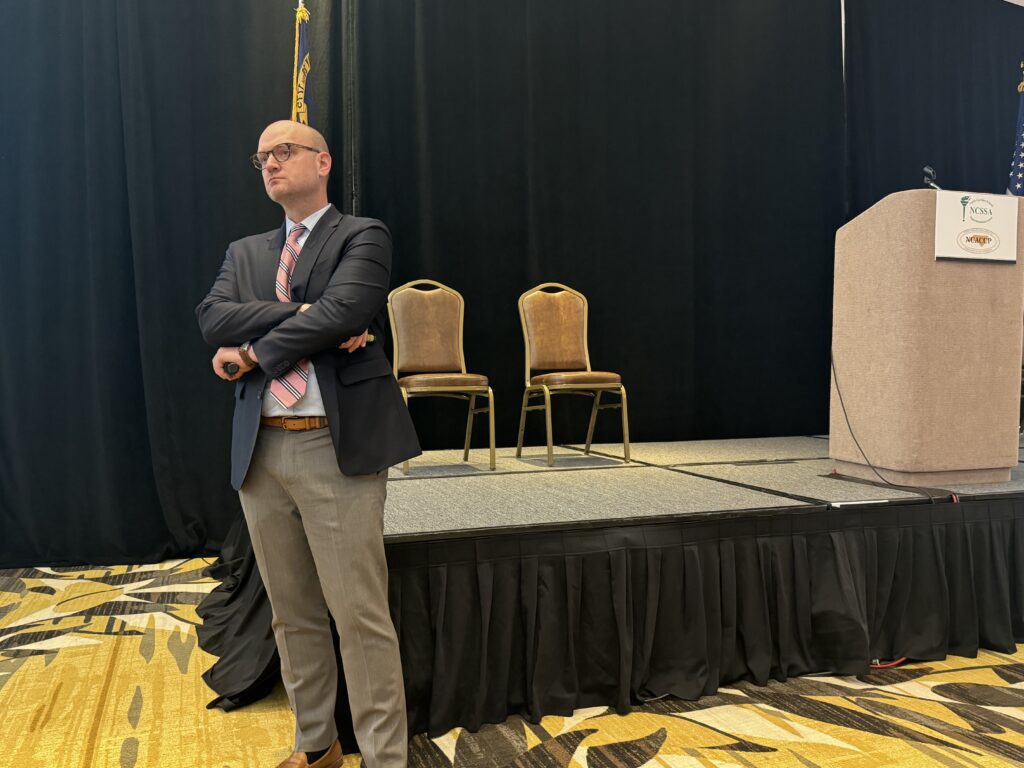

“We started the Lancer Academy. We chose to focus on delivering Career and College Promise courses on high school campuses to help our students overcome transportation challenges,” Lenoir Community College president Rusty Hunt said.
Various strategies by K-12 districts were highlighted as ways to help students overcome barriers and succeed in CCP programs. Some districts cover the cost of college textbooks for dual-enrolled students, others provide transportation from high schools to college campuses, and some offer CCP courses directly on high school premises. Collaborative marketing was noted as a key strategy in promoting these opportunities.
Surry-Yadkin Works also was spotlighted during the conversation. Be sure to check out the case study below for more information.
Demographer Jim Johnson did a presentation on what he dubs “demographic gale force wind shifts” in North Carolina. Johnson stressed that we must understand those shifts as we consider how best to adjust both our education system and our workplaces.
“We are on the cusp of a major enrollment cliff,” Johnson noted. “We have to figure out how to manage our business model given that reality. Particularly when combined with the ‘browning’ and ‘graying’ of America.”
Belk Endowment president and chair MC Belk Pilon brought the gathering to a close with a bit of motivational praise. “The leaders in this room wake up every single day thinking about how our students can succeed,” Pilon said. “Our state is known as a leader and an innovator because of each of you.”




